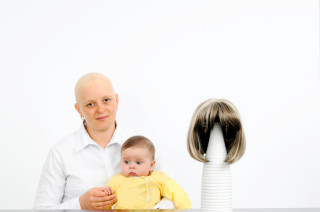 There are no clear-cut answers about using chemotherapy to treat cancer in pregnant women – and current advice is usually given on a case-by-case basis. But the fact that doctors do use chemotherapy to treat certain cancers in mothers-to-be today stems from studies started 40 years ago, in Mexico.
There are no clear-cut answers about using chemotherapy to treat cancer in pregnant women – and current advice is usually given on a case-by-case basis. But the fact that doctors do use chemotherapy to treat certain cancers in mothers-to-be today stems from studies started 40 years ago, in Mexico.
In 1973, Dr. Agustin Aviles, a doctor working in the public health service in Mexico, saw his first pregnant patient with leukemia. This led to a study into the use of chemotherapy in pregnant women suffering from the disease, and between 1973 and 2003 he investigated the impact of chemotherapy on the fetus. A total of 84 mothers-to-be featured in his study (suffering from leukemia, advanced Hodgkin’s or malignant lymphoma), and 58 of them received chemotherapy during the first three months of their pregnancy.
The results of the study turned conventional thinking on its head. According to Dr. Aviles, all 84 pregnancies came to term with only 5.8% of the children born having birth defects (reportedly minor ones). Current statistics evaluate the chance of a birth defect for anyone at about 3% of pregnancies in the US. Dr. Aviles followed up his work, tracking the progress of children whose mothers had received chemotherapy during pregnancy between 1970 and 1986. He found that their development, physical and mental, was on par with that of children born to women with no exposure to chemotherapy.
Because of Dr. Aviles’ groundbreaking work, many women have had the courage to take on chemotherapy during their pregnancy. What’s your experience with chemotherapy and pregnancy?
